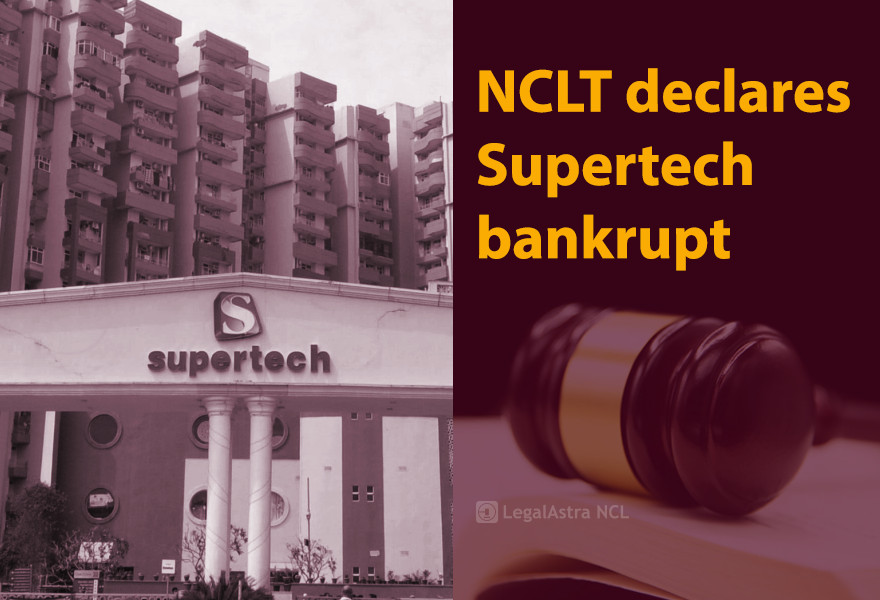The National Company Law Tribunal (NCLT) New Delhi, on March 25, 2022 admitted Union Bank of India’s application under Section 7 of the Insolvency and Bankruptcy Code (IBC) to initiate insolvency proceedings against real estate firm Supertech.
“We are satisfied that the present application is complete in all respects and the applicant financial creditor (Union Bank) is entitled to claim its outstanding financial debt from the corporate debtor (Supertech) and that there has been default in payment of the financial debt. As a sequel to the above discussion, the present application is admitted,” a two-member NCLT bench in Delhi said in its order. The order comes with immediate effect.


Track your NCLT / NCLAT cases or orders in your apple iOS / Google Android smartphones. Available for free trial period of 15 days.
Under Section 7 of the IBC, an applicant seeking to initiate insolvency plea needs to establish a debt and a default committed by the corporate debtor in respect of that debt.
The NCLT order is yet another blow to the real estate group. On August 31 2021, the Supreme Court had ordered the demolition of Supertech’s twin 40-storeyed towers, which are part of the under-construction Emerald Court project in Noida for violation of building norms.
In its application before the NCLT, Union Bank said Supertech did not pay its debt since July 2019 and claimed that the real estate firm’s default, as on January 2021, stood at Rs 432 crore. Supertech offered a one-time settlement offer which Union Bank did not accept. Between 2013 and 2016, Supertech availed two credit facilities, totalling Rs 250 crore, from Union Bank to part finance a group housing project, Eco Village -II, in Greater Noida.
Supertech failed to make timely repayment and subsequently, UBI declared it as a non-performing asset (NPA). Notice was also sent under the SARFAESI Act in April 2019.
The NCLT has also accepted UBI’s proposal to appoint Hitesh Goel as the interim resolution professional (IRP) and directed him to discharge his duties as per the provisions of the code.
